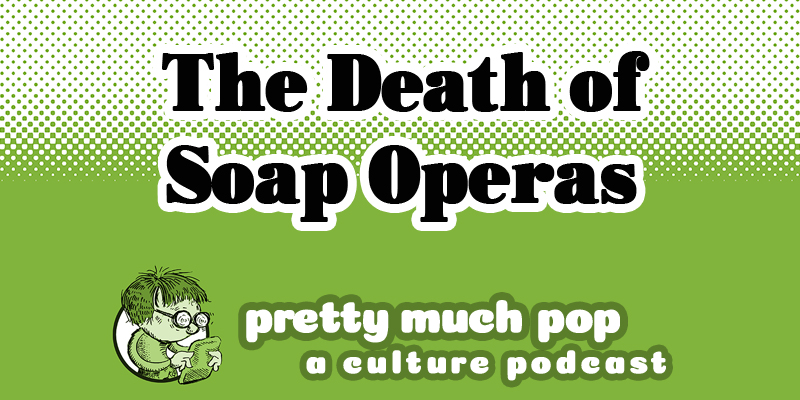
Writers Sarahlyn Bruck and Kayla Dreysse join your host Mark Linsenmayer to discuss how this once very popular TV show type has simultaneously become niche, yet has had a tremendous influence on current prestige TV as well as reality shows. We talk about soaps’ story and structure conventions, the demands on soap actors and writers, and how changing market forces and technology have affected the genre. How much of a role does sexism play in the critical dismissal of soaps?
In addition to the daytime soaps like General Hospital and The Bold and the Beautiful, we touch on nighttime soaps like Dallas, teen soaps like Beverly Hills 90210, Downton Abbey, White Orchid, Breaking Bad, 24, Gray’s Anatomy, and more.
Get Sarahlyn’s novel Daytime Drama and follow her at @sarahlynbruck.
We all watched the 2020 documentary The Story of Soaps, which is available on YouTube. A fun podcast Mark listened to some of is A Trip Down Soap Lane.
Other sources that inspired us included:
- “How Soap Operas Changed TV Forever” by Matt Zoller Seitz
- “How TV Fell Back in Love With Soaps” by Margaret Lyons
- “For 70 Years, the Soap Opera Has Shaped American Pop Culture” by Lorraine Ali
- “How Soap Operas Pioneered the Depiction of LGBTQ Characters” by Lynette Rice
- “Why Don’t Soap Operas Look Like Primetime Shows?” by Calvin Motley
- “‘GMA 40 for 40′: Behind the Scenes at General Hospital” at ABC News
Sample the Muppets’ fake soap opera that Mark’s intro references.
This episode includes bonus discussion you can access by supporting the podcast at patreon.com/prettymuchpop or by choosing a paid subscription through Apple Podcasts. This podcast is part of the Partially Examined Life podcast network.
Pretty Much Pop: A Culture Podcast is the first podcast curated by Open Culture. Browse all Pretty Much Pop posts.
The Death of Soap Operas (Is Greatly Exaggerated) — Pretty Much Pop: A Culture Podcast #105 is a post from: Open Culture. Follow us on Facebook and Twitter, or get our Daily Email. And don't miss our big collections of Free Online Courses, Free Online Movies, Free eBooks, Free Audio Books, Free Foreign Language Lessons, and MOOCs.
from Open Culture https://ift.tt/3lK1Dlr
via Ilumina
Comments
Post a Comment